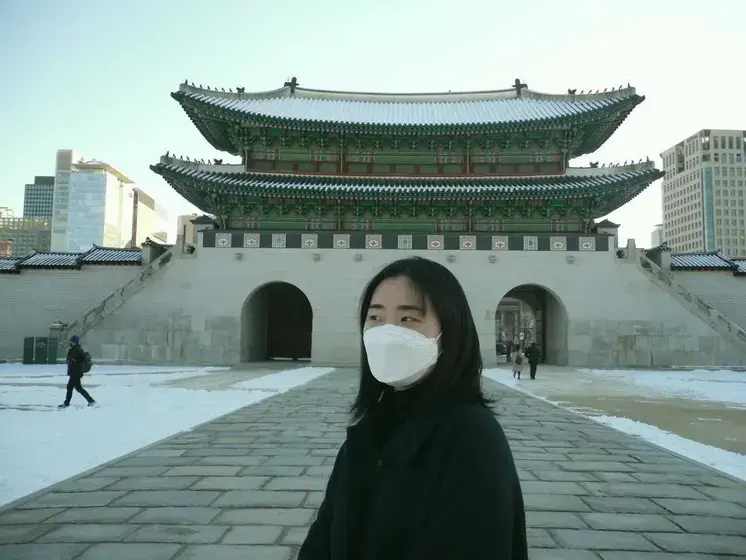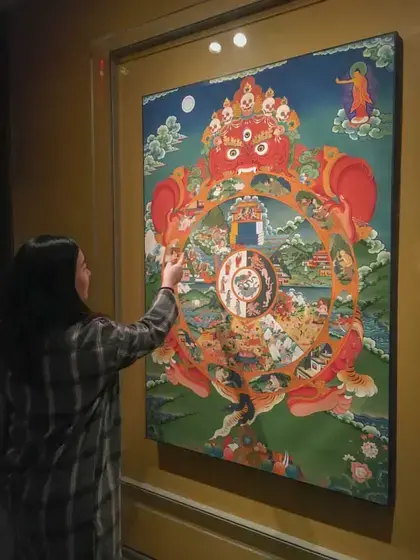Dismantling the Orientalist: Towards a Praxis of Postcolonial Asian Representation
By Ashley D. Escobar '22
Intertwining art history and poetry defines Dabin Jeong’s (’21) trajectory at Bennington College through her ekphrastic poems and compulsive fixations. However, her work is not concerned with the overly sentimental––she aims to dismantle, disrupt, and redefine continuously throughout her scholarly endeavors and artistic oeuvre.
“I am an inherently angry person, given my place in the world,” says Dabin Jeong in her plan. “I wrote this sentence in my foreword to my first-ever poetry collection of 10 poems. Anger fuels my writing. It is an anger coming from the hardship of navigating my presence in the United States as an Asian woman. It is an anger about just being a woman in this society. It is an anger of having the sense of responsibility to represent, somehow, being an Asian, a woman and an immigrant. That is my place in the world. And my writing has been about making people see what kind of place they reserved for me.”
With a Plan titled “Dismantling the Orientalist: Towards a Praxis of Postcolonial Asian Representation,” Jeong seeks to do exactly that. How can she portray her position as a woman, as an Asian, and an immigrant? Working with displacement and personal histories, her poetry thesis unravels generational collective traumas. Primarily focused on her mother’s side of the family, she contemplates her grandmother’s life under Japanese colonialism and its parallels within Korean heritage.
“Coming to Bennington made me reflect a lot on the positionality of my own identity—as a woman, as an Asian, as an immigrant. These projects are designed to serve the greater purpose of supporting underrepresented artists and narratives, making them known to the wider public, and bringing diversity to the world, but also give myself comfort and appreciate my Asianness,” Jeong describes her senior work process. “Through this, I expect to give a better picture—even a more ‘appropriate’ representation—and academically start a conversation on Asian experiences, Asian female experiences, and Asian female immigrant experiences.”
Her work is obsessive. Imagining and reimagining. Jeong intersects her art history affinity with the written word by careful placement and formatting.


At a joint reading with Sarah Lawrence students, we see Jeong read effortlessly and with great care. Her visual poems fill up the screen. Each word as intricate as the next. Each linebreak is intentional and delicate. Yet Jeong is not interested in simple contemplation––her voice is a call to action where even her grandmother is not safe from a preemptive elegy.
Jeong admits she was not a writer before she arrived at Bennington. But after getting the chance to work with former faculty member and writer Anna Maria Hong, she discovered a medium that enables her voice to come through the way she wants.
A recipient of the Catherine Morrison Golden '55 P'80 Undergraduate Writing Fellowship in Poetry, we are excited to see where Jeong goes next in her work and for the audience that isn’t ready for what’s to come.